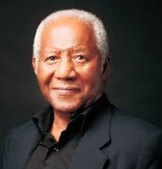‘Blue Economy’ opportunities with guidance of UN protocols

Dr. Lanre Towry-Coker, FRIBA, FNIA, MA Law (UL), Ph.D, a former commissioner for housing in Lagos State, with a doctorate from Lagos State University, is founder of Towry-Coker Associates since 1976, and a professional architect with a postgraduate qualification in Architecture from the University of North East London. He had his professional training at the world famous Royal Institute of British Architects (RIBA) and is an Associate of the Chartered Institute of Arbitrators in the United Kingdom (ACI.Arb.); a Fellow of the Nigerian Institute of Architects (FNIA), he was elected Fellow of The Royal Institute of British Architects, (founded 1834), in November 2016, and is one of only forty architects worldwide to be so honoured. He is also the author of the book, “Housing Policy And The Dynamics Of Housing Delivery In Nigeria: Lagos State As Case Study” published by Makeway Publishers, and available on Amazon and also at The Royal Institute of British Architects, Portland Place. London.
January 29, 2024298 views0 comments
His consortium, Towry-Coker Associates/Neue Heimat Abuja Consortium, was also one of the master planners of the Federal Capital Abuja, along with Japanese architect Kenzo Tange and Brazilian architect Oscar Neimeyer.
The Nigerian government’s newest ministry, the Ministry of Marine and Blue Economy, opens up a vista of opportunities. However, this vista of opportunities comes with the need for some basic understanding; that there are certain well defined protocols under which the United Nations Charter operates, and that these protocols should be at the forefront of the ministry’s decision making process.
These are the basic requirements for the ministry to implement if we are to observe a sustainable future.
The blue economy refers to the sustainable use and development of ocean resources for economic growth, improved livelihoods, and environmental preservation. The main specifics governing the blue economy include:
Read Also:
Sustainability: Focus on sustainable practices to ensure that ocean resources are utilised in a way that doesn’t deplete or harm marine ecosystems.
Marine conservation: Protecting and conserving marine ecosystems, biodiversity, and habitats to maintain the health of oceans and marine life.
Economic activities: Balancing economic activities such as shipping, fisheries, tourism, energy production (offshore wind, oil, gas), and mineral extraction with environmental protection.
Technological innovation: Utilising advanced technologies for ocean exploration, monitoring, and sustainable resource extraction.
International law: Adhering to international legal frameworks like the United Nations Convention on the Law of the Sea (UNCLOS) that establish guidelines for maritime jurisdiction, rights, and responsibilities.
Collaboration: Encouraging collaboration among governments, industries, academia, and NGOs to ensure coordinated efforts and knowledge sharing.
Climate resilience: Addressing the impacts of climate change on oceans and coastal communities, including sea level rise and increased frequency of extreme weather events.
Blue infrastructure: Developing infrastructure like ports, coastal protection, and maritime transportation systems to support economic activities while minimising environmental impacts.
Job creation: Generating employment opportunities and sustainable livelihoods for coastal communities through various blue economy sectors.
Research and education: Promoting scientific research and education to understand marine ecosystems, biodiversity, and sustainable practices.
Governance and regulations: Establishing effective governance frameworks and regulations to manage competing uses of ocean resources and prevent overexploitation.
Social equity: Ensuring that benefits from the blue economy are distributed equitably among different segments of society, including marginalised communities.
Balancing economic growth with environmental sustainability is a key challenge in governing the blue economy, as it requires careful management on many levels, inclusive of cooperation on local, national, and international levels.
